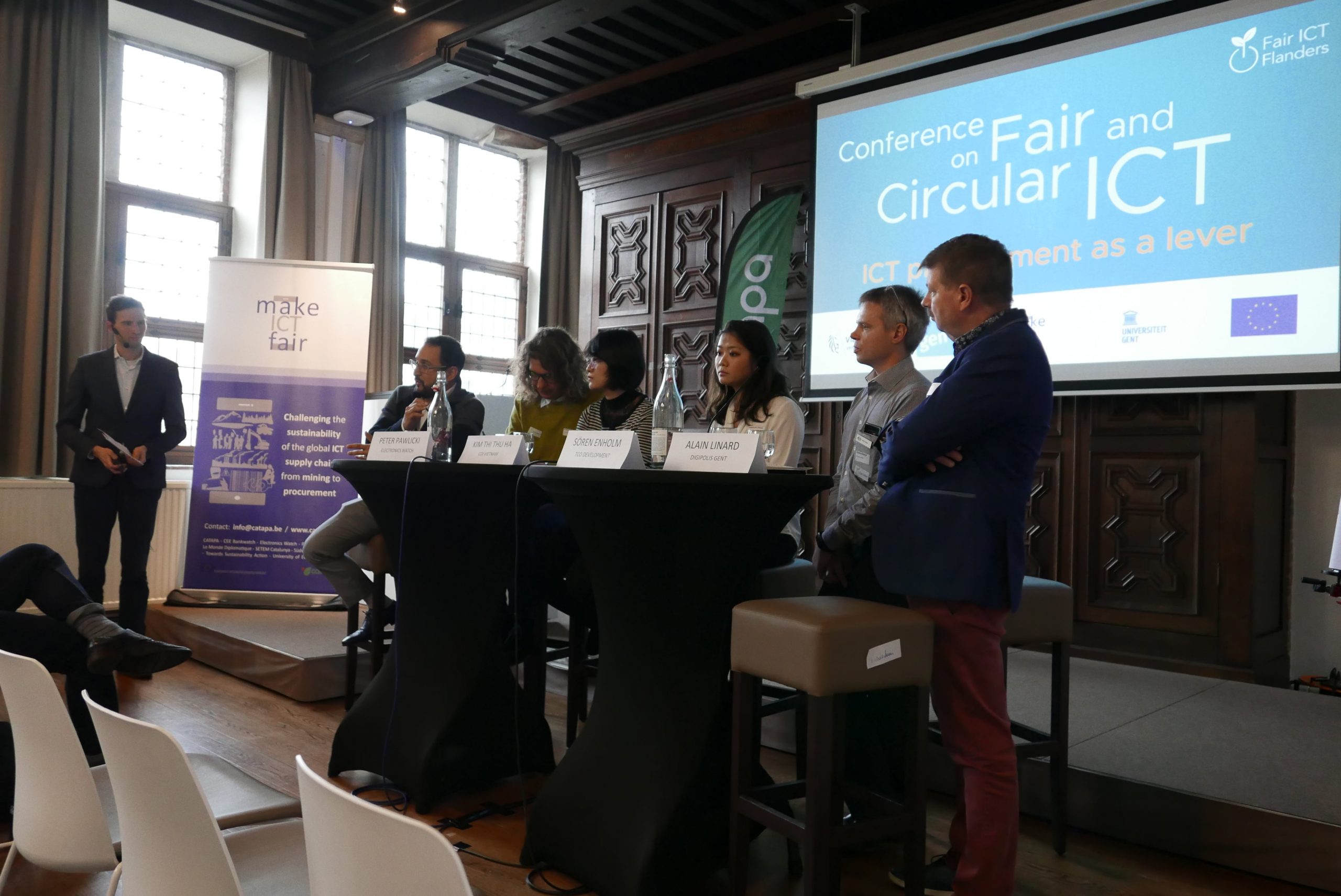Kim Claes | aankoop, Algemeen, Consumptie, Oplossingen
On 9 December, the ‘Conference on Fair & Circular ICT’ took place in Ghent, organised by Fair ICT Flanders in collaboration with Make ICT Fair. It was the first conference in Flanders to be entirely dedicated to the theme: “How can you, as an ICT buyer, do your bit towards a more sustainable world? With 110 participants, the conference shows that the theme is very much alive among buyers, sustainability employees and ICT professionals from public institutions and private companies.
The power of responsible purchasing
The production of laptops, smartphones, servers… is accompanied by many human rights violations and has an enormous ecological impact. With this conference, Fair ICT Flanders want to provide concrete tools for large buyers of ICT hardware from the public and private sectors in Flanders. Through their purchasing policy, they can put pressure on the ICT companies and contribute to improving the local working and living conditions within the ICT supply chain. After speeches by Ghent Deputy Mayor Sofie Bracke and Chief Logistics Administrator of the University of Ghent Jeroen Vanden Berghe, Kim Claes, coordinator of Fair ICT Flanders opened the day: ‘There is a great potential. Purchasers in Flanders are still insufficiently aware of the power they have. Through their purchasing power, they can work for the protection of environmental and human rights. It is therefore good to look at what is happening in other European countries and to join forces here in Flanders.”
Alain Linard, Head of Operations at Digipolis Gent indicated:
Alain Linard – “We want to use people’s tax money in a responsible way. We do not want to contribute to human rights violations through our purchases and thus assume our responsibility.”


Need for change
The Vietnamese Ha Kim Thi Thu demonstrated the urgent need for change by highlighting the serious violations of labour rights in Vietnam within the factories of suppliers. The other speakers discussed the possible solutions to the problems mentioned, ranging from worker-driven monitoring of the chain, certification labels for ICT to an own tracking system (from Fairphone). In the panel discussion, the speakers discussed with each other and it became clear that the challenges in the ICT chain require more than the standard social audits that are currently taking place. Peter Pawlicki, Director of Outreach and Education, of the NGO Electronics Watch, put it strongly:
Peter Pawlicki – “We were able to document instances where employees were trained in what to say to auditors. These so-called ‘workers’ training courses’, show the limits of auditing methodology.”
In the afternoon, front-runners from the EU and Flanders presented their good examples and the participants were able to enter into a dialogue with the invited experts. Ideas and possibilities to work on fair and/or circular ICT were discussed at discussion tables. The participants went home with a lot of inspiration and new ideas.
Fair ICT Flanders will offer 3 years of support to organisations that want to work on a more fair and circular ICT procurement policy. The programme can still be found via this link. More info or questions, don’t hesitate to contact us!


